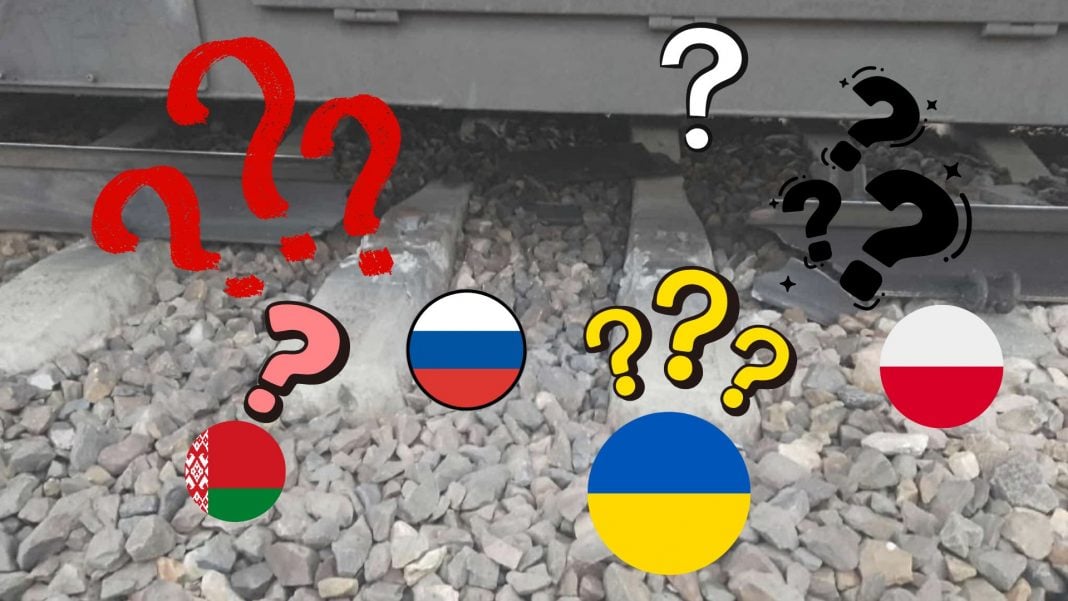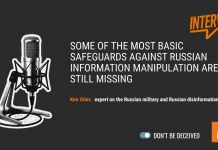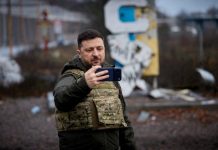Another act of sabotage in Poland has seriously shocked the public. This time, no warehouse burned down, but a train could have derailed. The possibility of a real tragedy became a reality. Such an escalation is an excellent opportunity to ask fundamental questions about safety. At the same time, it is an opportunity to raise questions with a thesis or alternative suggestions, in accordance with the guiding principle of Russian disinformation: “nye wsyo tak odnoznachna” (nothing is so obvious).
A review of the statistics of comments after the railway diversion near Mika may surprise the untrained eye. Who was the perpetrator? Res Futura summarized 14,000 comments online. 42% of them argue that the perpetrators are Ukrainians, while Russians appear in only 24% of the sample. Psychology has proven in numerous studies that we lose confidence when we discover that those around us have a different opinion. The mechanism works like: “Hmm, there must be something to it.” The number of alternative versions on the internet astonished popular YouTuber Piotr Zychowicz, who described its scale on his channel with the colloquial Polish term “Saigon” (meaning a total chaos or mess). According to his account, the prevailing opinion on the internet was “that it is too crude and stupid for the Russians to have done it, and that it is a sophisticated game played by the Ukrainian services”.
Alternative concepts are usually based on two pillars: the intuitive belief that we are only being shown a fragment of reality (which is sometimes true), and the “rational” belief, which boils down to the banal statement: “It’s too obvious.” Once the audience has been brought to this point, the question arises: “So who did it?”
An interesting media example is the interview with Łukasz Warzecha conducted on Radio Wnet on November 19, 2025. The statements of the columnist, who was often “Ukrainian-skeptical,” and in fact is so permanently, go through various stages of deconstruction of the common/official version of events:
Who carried out this sabotage? I know that many people will say, and that such voices have already appeared in the Polish media, that it was the Russians. This cannot be ruled out, of course.
The second stage is doubting whether reality is “as they show us”:
However, I am afraid that Poland is an easy playing field for various services, not only Russian ones, because I would like to remind you of the Nord Stream bombing and the activities of what is probably Ukrainian intelligence on Polish territory (…), similarly to the arson attacks, which were allegedly carried out on Russian orders, but by Ukrainians.
The statement leads to the conclusion: “If not the Russians, then who? I think we know”:
It all looks very strange, and if we asked ourselves the classic question in crime novels, which we should always ask when explaining such matters – qui prodest? Who benefits from this? The Russians can benefit from causing chaos in Poland, and that is generally what hybrid warfare is all about; causing chaos is its main goal. But on the other hand, if, God forbid, such a disaster were to occur, the Russians would obviously be the first target, the object, they would be pointed to as the perpetrators, which would lead to a general mobilization in Poland against Russia. And here I have doubts as to whether this is actually in Russia’s interest… Therefore, such a disastrous diversion would be contrary to the intentions of the Russian Federation.
And a final, but unspoken suggestion:
I do not want to make far-reaching claims that the Ukrainians derailed our train – I did not say that, just to be clear, but I would not rule out any possibility here. What worries me most is the question of how freely foreign intelligence services can operate in Poland, various – I emphasize – foreign intelligence services.
One could venture the thesis that the fact that the perpetrators of the latest act of sabotage were Ukrainian citizens is also part of the instigators’ strategy. Their biographies, previous convictions, attitudes, and to whom they are truly loyal are rarely discussed in popular or biased debate. We would not call the perpetrators of numerous acts of sabotage that took place in September 1939 Poles, but in the current narrative, these criminals are often referred to as Ukrainians. The use of the more politically correct term “citizens of Ukraine” also does not make this issue any clearer.
This fact also supports the official version. Anyway, why make anything clear when we already know who did it?
Albert Iwański





